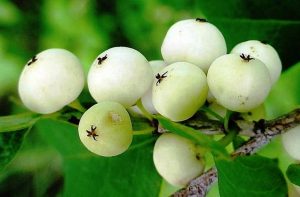Turmeric Spinach is scientifically referred to as Spinacia oleracea. It is a member of the Amaranthaceae family and it is definitely one of the most popular green, leafy vegetables with a rich source of minerals, vitamins and phytonutrients. Spinach can be eaten raw as salads or cooked. It rightly deserves its reputation as an extremely nutritious and a life protecting vegetable. Spinach is grown in colder climatic conditions.
Spinach is one of the many seasonal vegetables which provides a very good amount of vitamins B6, riboflavin, folate, niacin, soluble dietary fibre, omega 3-fatty acid and minerals. It is so rich in iron and as such, its regular intake can prevent a number of disease conditions including; bone loss (osteoporosis), and anaemia which usually results from iron deficiency. This is due to the fact that after its absorption, it leads to formation of haemoglobin and red blood cells which greatly builds up the blood important in the prevention and treatment of anaemia.
Spinach has been shown to be helpful in protecting the central nervous system, reducing inflammation and delaying the ageing process by protecting the body cells. It has also been found to be a valuable vegetable for alleviation of constipation due to the high fibre and water contents in it hence promoting a healthy digestive tract.
Spinach contains choline and inositol; the substances that help to prevent arteriosclerosis, or hardening of the arteries and its ample quantity of Vitamin K makes it so important in the formation of the blood substance required for clotting of blood. Furthermore, considering that spinach contains more vitamin A than most other green vegetables, its juice mixed with carrot or red beet juice promotes growth and health of the eye cells hence preventing night blindness. This vitamin A also strengthens the immune system of the body and helps in replenishing white blood cells.
Spinach juice is effective in strengthening the gums and is important in preventing and curing dental cavities. In fact, chewing raw spinach leaves cures pyorrhoea. A mixture of carrot juice and spinach juice taken early in the morning, can cure bleeding and ulcerated gums. Spinach contains enough amount of vitamin C to prevent and cure scurvy. Consumption of spinach juice also makes bones denser and stronger due to the rich calcium in it and also prevents age-related macular degeneration.
Regular consumption of spinach is important for the prevention of type 2 diabetes risk due to it’s high magnesium content. And due to its high potassium content, spinach is recommended for people with high blood pressure. Potassium can help reduce the effects of sodium in the body. A low potassium intake might be as potent a risk factor for developing high blood pressure as a high sodium intake.
Additionally, spinach contains high amounts of nitrates, which may also regulate blood pressure levels hence leading to improved heart health and a reduced risk of heart disease. Folate present in spinach also contributes to the reduction of hypertension and relaxes blood vessels while maintaining proper blood flow. Due to the innumerable benefits of this vegetable, it is advised to consume spinach on a regular basis to keep diseases at bay. (Richard Komakech)






